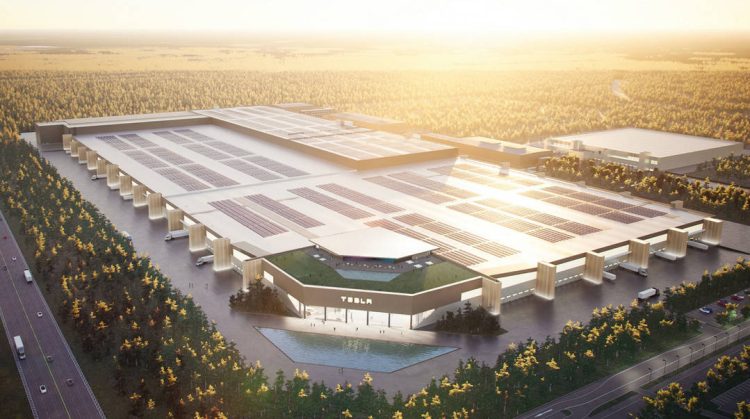Recently, Tesla has made significant progress in its plan to expand its Gigafactory in Gruenheide, Brandenburg, Germany. The expansion project has received positive approval from the Brandenburg Environmental Protection Agency. This news marks a further increase in Tesla’s production capacity in Europe, injecting new momentum into its competition in the global electric vehicle market.
According to RBB24 in Germany, the Brandenburg State Environmental Protection Agency has decided to approve Tesla’s expansion of the existing factory site after a rigorous review. This expansion project mainly focuses on capacity improvement and does not involve additional land construction that has sparked widespread protests, namely areas that require deforestation. The environmental department stated that Tesla can start construction ahead of schedule at its own risk, but must strictly comply with environmental regulations to ensure that the impact on the environment during the expansion process is minimized.
The expansion of Tesla’s Berlin Gigafactory is an important component of its capacity doubling plan. According to Tesla officials, the expanded factory will achieve the goal of producing 1 million cars annually and increase battery production to 100 gigawatt hours (GWh) per year. This expansion will not only greatly enhance Tesla’s production capacity in Europe, but also help shorten the supply chain, improve supply chain safety, and further consolidate Tesla’s leading position in the global electric vehicle market.
To achieve this goal, Tesla plans to take the lead in building a logistics area for parking new cars and laying necessary underground cables in the expansion project. In addition, Tesla will also set up a multi-functional tent campsite as a coordination center for the expansion project. On the north side of the die-casting workshop, Tesla will build stairwells, visitor and truck passages to optimize the production process and improve production efficiency.
It is worth mentioning that Tesla actively fulfills its environmental responsibilities and has introduced multiple environmental measures in its expansion projects. Tesla has submitted an application to install photovoltaic systems on the roofs of various operating units’ buildings and has been approved. This measure will help reduce energy consumption in factories, lower carbon emissions, and achieve sustainable development.
However, Tesla’s expansion plan has not been smooth sailing. Previously, the expansion project faced strong opposition from local residents due to the need to cut down a certain number of trees to free up space. Some environmentalists and local groups are concerned that the expansion will endanger local water resources and air quality. Therefore, Tesla had to adjust its expansion plan, reduce the area of deforestation, and promise to take stricter environmental measures.
The approval from the environmental department has cleared important obstacles for Tesla’s expansion plan. Tesla stated that it will continue to strengthen communication and cooperation with local governments and environmental organizations to ensure the smooth implementation of expansion projects, and strive to build the factory into one of the most modern, sustainable, and efficient factories. With the advancement of the expansion project, Tesla’s production capacity in Europe will be further enhanced, making greater contributions to the prosperity of the global electric vehicle market.


































Discussion about this post